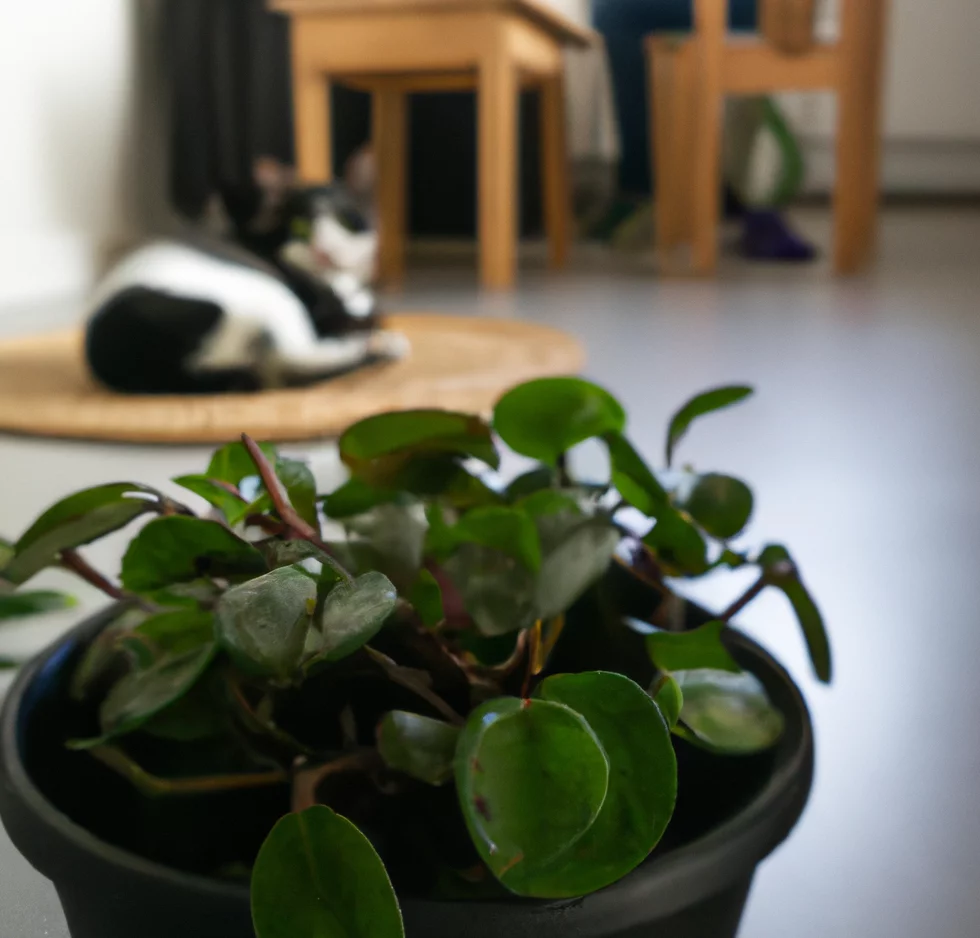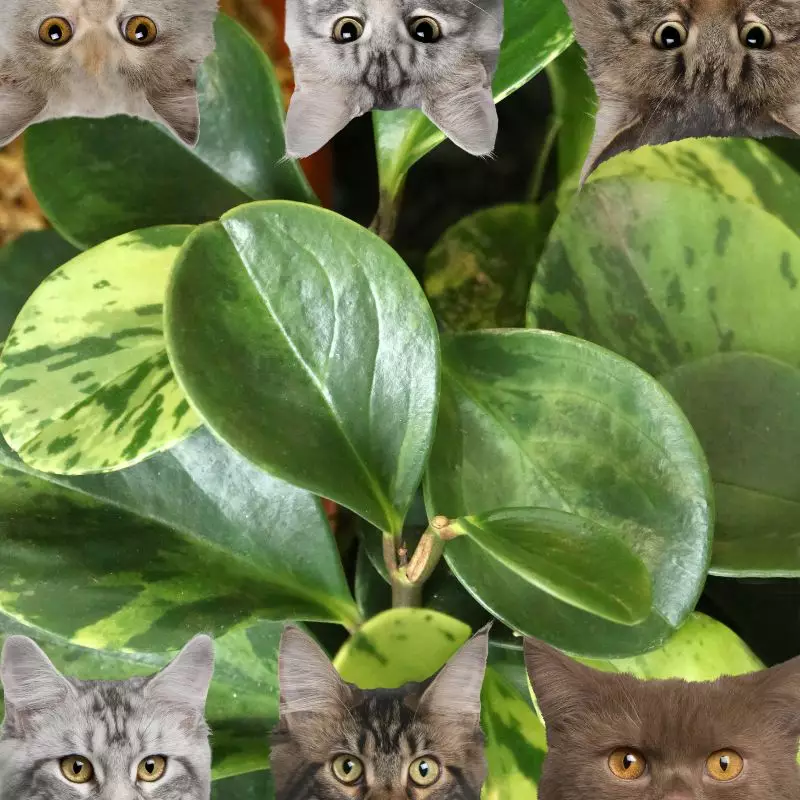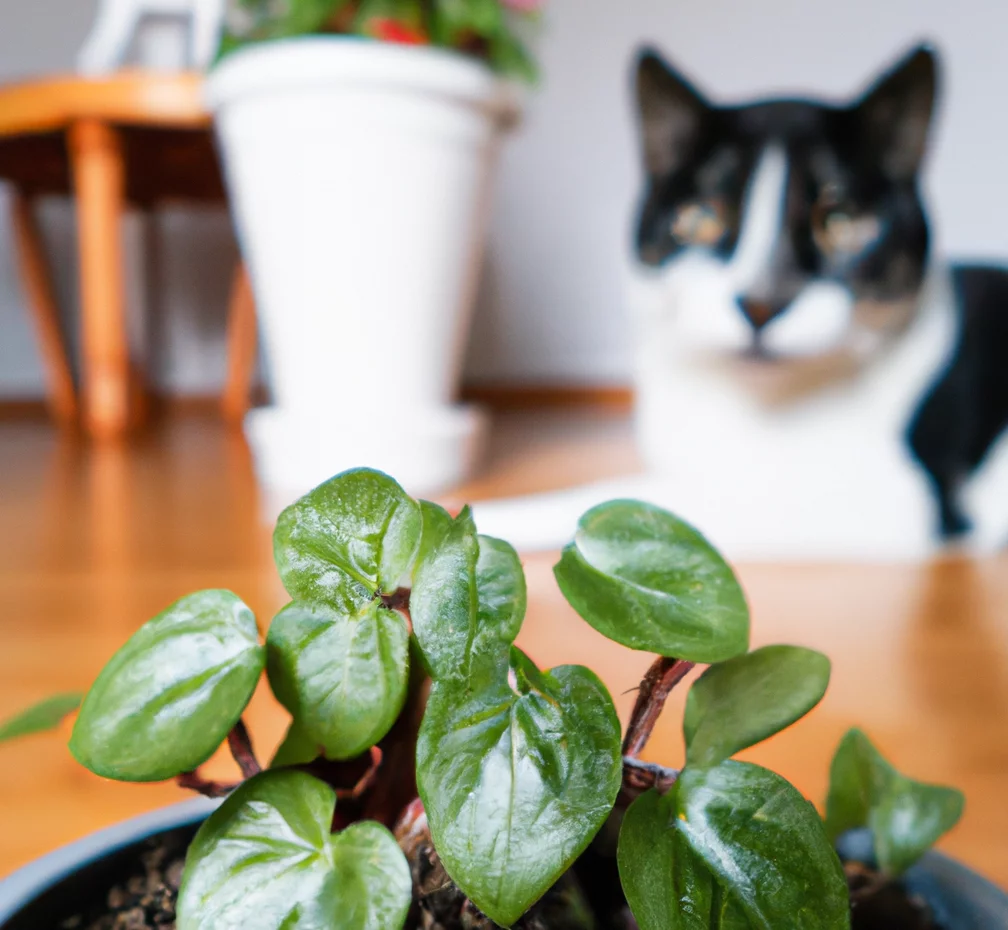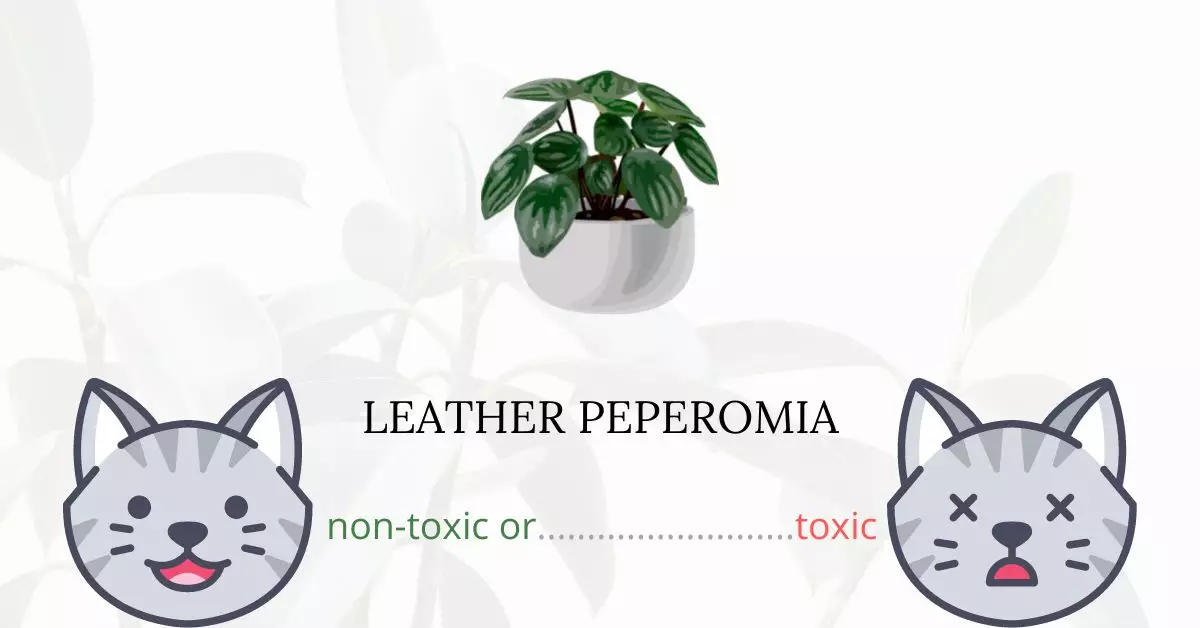Leather Peperomia is not toxic to cats.
This article is the result of a collaboration with a team of experienced DVMs (doctors of veterinary medicine). With their expertise, we are able to provide accurate and up-to-date information on the potential risks associated with Leather Peperomia and its effects on feline health. For comprehensive insights, we’ve also sourced information from high-authority websites such as ASPCA and PetMD.
It’s worth noting that the American Society for the Prevention of Cruelty to Animals classifies Leather Peperomia as a non-hazardous plant not only for cats but also for dogs and horses. Thus, it can be safely grown in proximity to these animals.
Can Cats Eat Leather Peperomia?

While technically non-toxic, leather peperomia can cause certain toxic-like symptoms in cats who try to consume too much of it. Due to the structure of their digestive systems, cats, which are primarily carnivores, can only consume a very little amount of plant materials. Overindulgence may cause nausea, irritation, or diarrhea.
What is Leather Peperomia?

Leather Peperomias are frequently grown for their decorative leaves and are thought to be simple plants to grow in greenhouses and homes. This perennial plant often needs a high amount of light, average temperature, and average amount of moisture to grow. Around the world, tropical and subtropical climates are home to this Piperaceae family member. This plant is native to Central Africa.
Its stems are 1/2–2 ft. long trailing at the base, branching and rooting, slender and glabrous. The leaves are alternate, distinctly petioled, and moderately firm.
Keeping Cats Away From Leather Peperomia

It might be a good idea to keep your plants in a room that your cat cannot reach. If your plant is in a wide container, you might be able to deter your cat from chewing on it by placing beautiful rocks with sharp edges nearby.
Think about any potential causes for your cat’s plant-eating behavior. If she is bored, try giving her toys, and amusement.
Spray your plants with the well-known repellant Bitter Apple. Although it is undetectable to humans and harmless to your plants, cats detest the smell.
The effects of citrus and weak vinegar are comparable. The flavor will put them off if the fragrance isn’t effective in deterring them.
Plants to Avoid For Your Cats
If you are a cat owner and unsure if the plants growing in your yard are harmful to your cats, check out this list of toxic plants for cats. You can also check our list of non-toxic plants for cats.





